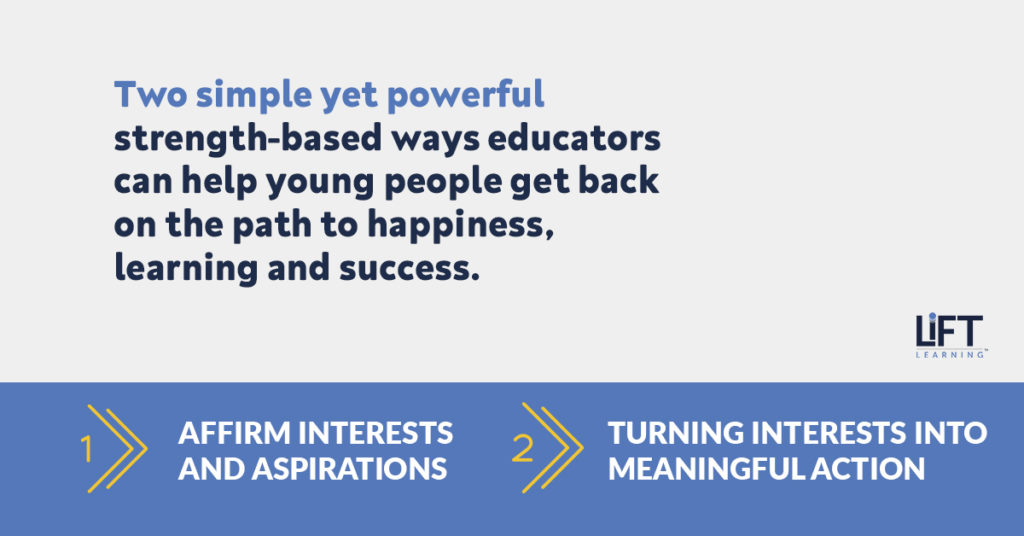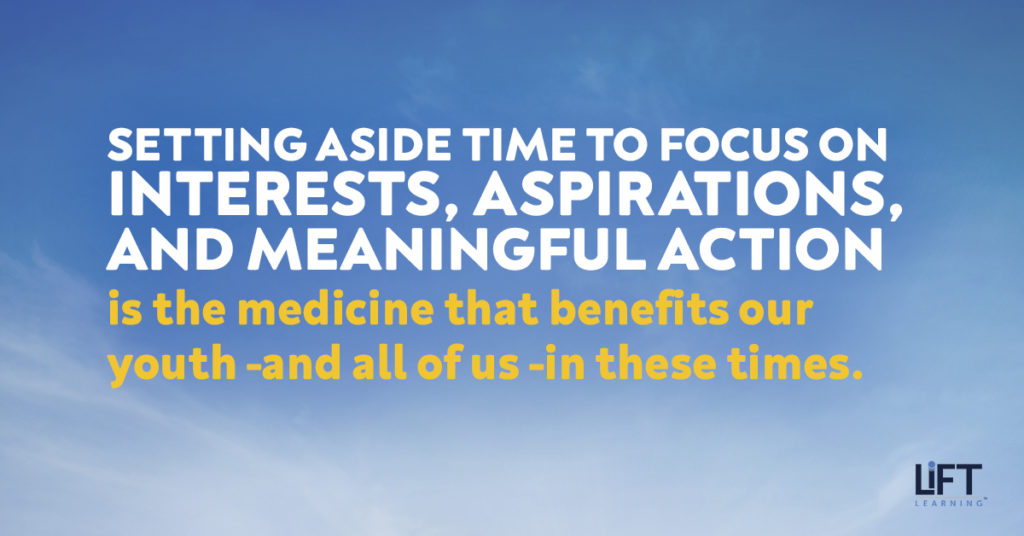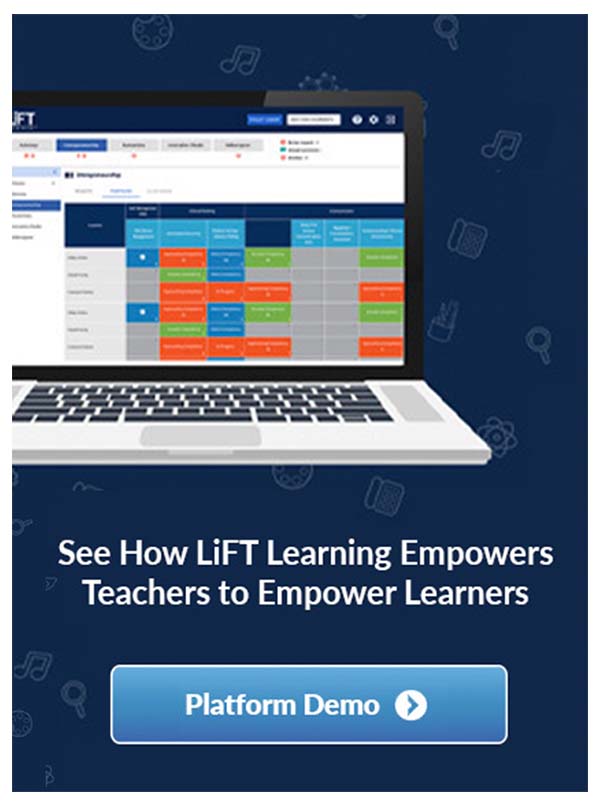Two things every educator can do today to help youth find post-pandemic resilience

Right now, many young people are vibrating with the uncertainty, isolation, and collective trauma due to this global pandemic which has captured everyone’s attention. As responsible adults, it is crucial to help our youth shift their attention to positive innate qualities to help them regrow their courage, strength, and resilience.

Here are two simple yet powerful strength-based ways educators can help young people get back on the path to happiness, learning, and success.
1. Affirm interests and aspirations:
First, affirm that their interests and aspirations matter and give them a non-judgmental space to explore these interests. It takes vulnerability to share one’s dreams, so the climate should feel incredibly safe and supportive.
Give them time to let their minds and imaginations soar, taking care not to blunt their imagination with doubts and limitations. Instead, take a moment to notice and name things that spark their interest that even they may not be fully aware of.
Practice asking open questions to extend their interests, for example:
- If they like sports, “What would your dream roster be for your dream team?”
- If they like music, “What are the top 3 songs you think I should listen to?”
- If they like working on bikes, “How would I learn the skills I need to keep my bike in good shape?”
- If they like animals, “What are your favorites? What qualities in these animals amaze you? When have you seen a similar quality in yourself?”
This deceptively simple act of active listening has far-reaching consequences. Giving them these moments to express their thoughts and opinions, you’ll see them light up with excitement and activate the innate curiosity that leads to hope. It shifts attention from struggle to strength, from futility to bright futures.
Looking for more about asking open questions? Check out https://counseling.education/files/questions.pdf
2. Turning interests into meaningful action
Next, to confront the illusion of helplessness, the wise educator gives youth an opportunity to take meaningful action. Even small, simple actions bring a measure of certainty and confidence. Small actions connected to a personal interest, wellness, hope, dream, or relationship are particularly effective.
You can prompt possible actions with tentative suggestions like those below, and then let them lead the way.
The more ownership they have, the better!
- If they like to play sports – “You seem to know a lot about how athletes avoid injuries and stay healthy during the season. You could put some ideas together and share with your teammates and coach.”
- If they like music – “Does your favorite artist sing about certain social issues that matter to you? Maybe you could find local clubs or groups acting on those issues.”
- If they like working on bikes – “Have you thought about fixing other people’s bikes? You could make a flyer to advertise, or you could fix up bikes for people who really need transportation.”
- They like animals – “What are ways we could protect endangered animals more? How about the local shelter? You could make a flyer to put up here at school, at the vets, or at the grocery store to raise awareness.”

Setting aside time to focus on interests, aspirations, and meaningful action is the medicine that benefits our youth -and all of us -in these times, so remember to Maslow before Bloom.
Helping youth connect with what gives them energy and joy has a profound effect on their bio-psycho-social-spiritual well-being and is the essential first step if they are to become fully available to learning.
Have a strategy to engage youth and build resilience? Tell us about it! We’ll include it in upcoming articles about resilience, engagement, and SEL.

Note: When to seek professional support
Helping youth process trauma and intense emotions safely and effectively is complex and should be undertaken by qualified mental health professionals.
Educators play a special role as trusted adults that can help students and families find the resources they need. Educators should reach out immediately to supervisors for support if there are any questions about safety or the well-being of students.
Never worry alone, or attempt interventions for which you are not qualified. Instead, speak genuinely and openly to students and families, and colleagues about your concerns, and make timely referrals for professional help when warranted.


